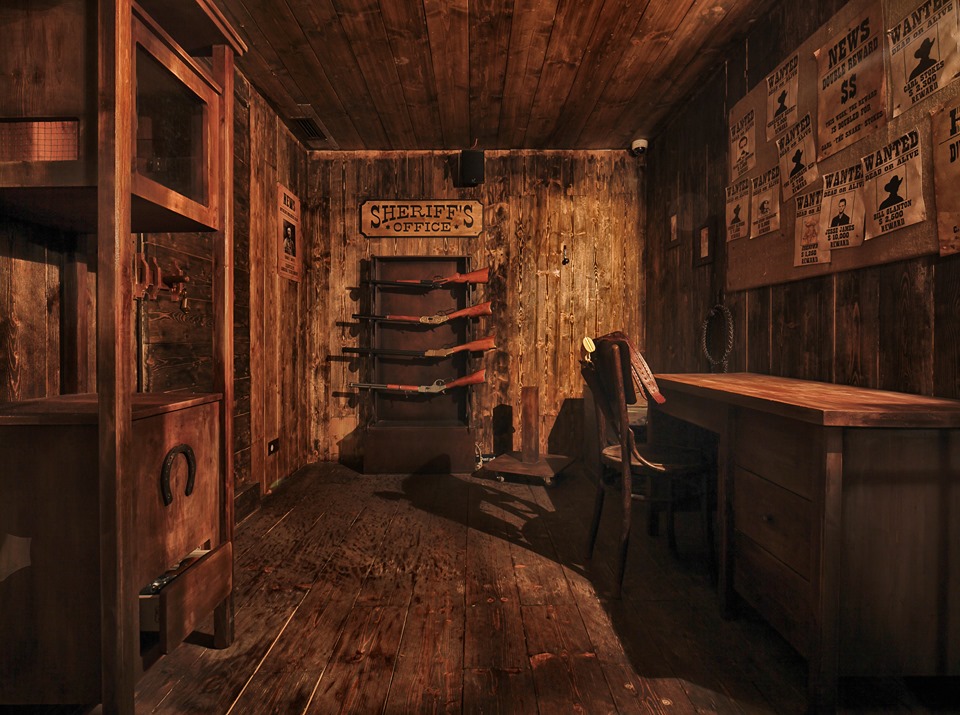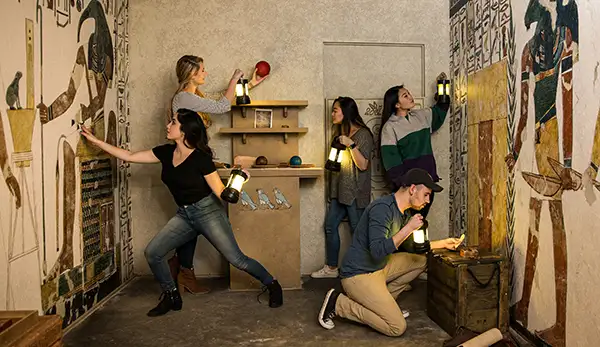Opening the Educational Conveniences of Escape Room Obstacles
Integrating retreat room difficulties into academic frameworks provides a special chance to improve important reasoning, advertise team effort, and establish analytical skills among students. By merging entertainment with education, retreat areas not just improve trainee interaction but also prepare them for future difficulties, requiring strength and cooperation.
Enhancing Crucial Assuming
Escape space difficulties function as a dynamic and engaging tool for boosting important thinking abilities. These immersive experiences need participants to address a series of challenges and puzzles within a set duration, fostering a setting where cognitive skills are carefully tested and established. The nature of retreat rooms requires an organized method to analytic, encouraging individuals to examine information critically, acknowledge patterns, and attract logical final thoughts.
Individuals in escape room difficulties are usually confronted with complicated troubles that require innovative options, therefore promoting association of ideas. This sort of reasoning is essential for identifying connections in between relatively unconnected principles and for generating creative services. Furthermore, the stress of a ticking clock includes an element of urgency, pushing individuals to believe both promptly and accurately.
Moreover, escape room difficulties frequently incorporate a variety of challenges that attract different cognitive staminas, such as rational reasoning, spatial understanding, and mathematical skills. This diversity guarantees that participants exercise a broad series of mental faculties, which is key to comprehensive cognitive development. In significance, retreat areas develop a revitalizing atmosphere that not only entertains but additionally grows necessary vital believing abilities, making them a valuable educational device.
Supporting Team Effort
Working with each other properly is a crucial part of success in getaway room obstacles, as these activities inherently require partnership amongst individuals. The structured setting of a getaway room demands that individuals pool their varied skills, expertise, and point of views to solve intricate issues within a limited duration. This collaborative strategy cultivates an understanding of the relevance of each team participant's contributions, thereby enhancing social abilities and mutual regard.
In an academic context, retreat areas function as a dynamic system for promoting synergy among pupils. By engaging in these difficulties, students discover to connect much more properly, delegate tasks based upon individual staminas, and assistance one another under pressure - escape room in orlando. These experiences equate right into better group characteristics in class settings, where cooperative understanding is important for scholastic success
In addition, the immersive and interactive nature of getaway areas provides a useful, hands-on experience that strengthens academic concepts connected to team effort. It permits individuals to exercise and refine vital soft abilities, such as management, energetic listening, and conflict resolution. Therefore, escape area challenges not only make discovering delightful but also prepare students for future real-world scenarios where team effort is crucial.
Creating Problem-Solving Skills
Creating analytical abilities with retreat area difficulties offers a special and appealing approach for sharpening vital assuming capacities. These interactive settings existing individuals with a collection of complex challenges and situations that need analytical and innovative approaches to solve. By browsing these difficulties, individuals are obliged to think outside package, adjust swiftly to new info, and apply logical reasoning in real-time.

The hands-on nature of escape space challenges fosters a feeling of urgency and exhilaration, which can considerably boost student motivation. They are a lot more most likely to spend initiative and excitement right into the discovering jobs when trainees are involved in a story that needs them to fix puzzles and conquer challenges. This enhanced involvement can lead to much deeper understanding and retention of the product, as trainees are called for to apply their understanding in real-time situations.
Additionally, the collective aspect of getaway spaces advertises synergy and interaction skills. Incorporating getaway area difficulties right into educational settings can be a powerful technique to raise student engagement and drive scholastic success.
Final Thought

Incorporating retreat space difficulties right into academic structures presents an unique opportunity to improve critical thinking, promote teamwork, and create analytic abilities amongst pupils. As an outcome, getaway space tests not just make discovering enjoyable yet likewise prepare pupils for future real-world scenarios where synergy is important.
Engaging students in the discovering process is important for academic success, and get away area challenges use a compelling service to this instructional crucial. Incorporating retreat space difficulties right into educational settings can be a powerful technique to elevate pupil engagement and drive academic success.
The vibrant nature of getaway areas effectively furnishes pupils with important skills for scholastic and real-world success, ultimately enriching the academic experience and preparing students for future obstacles.